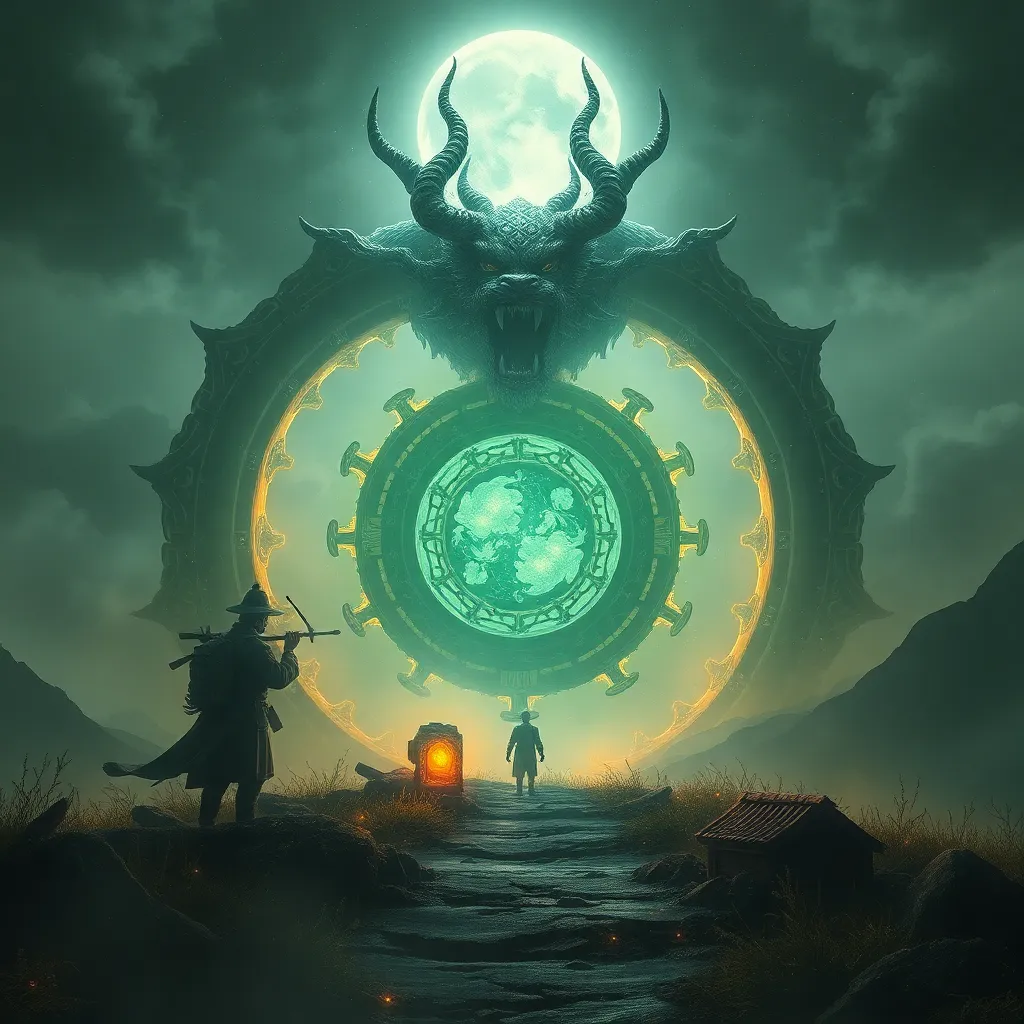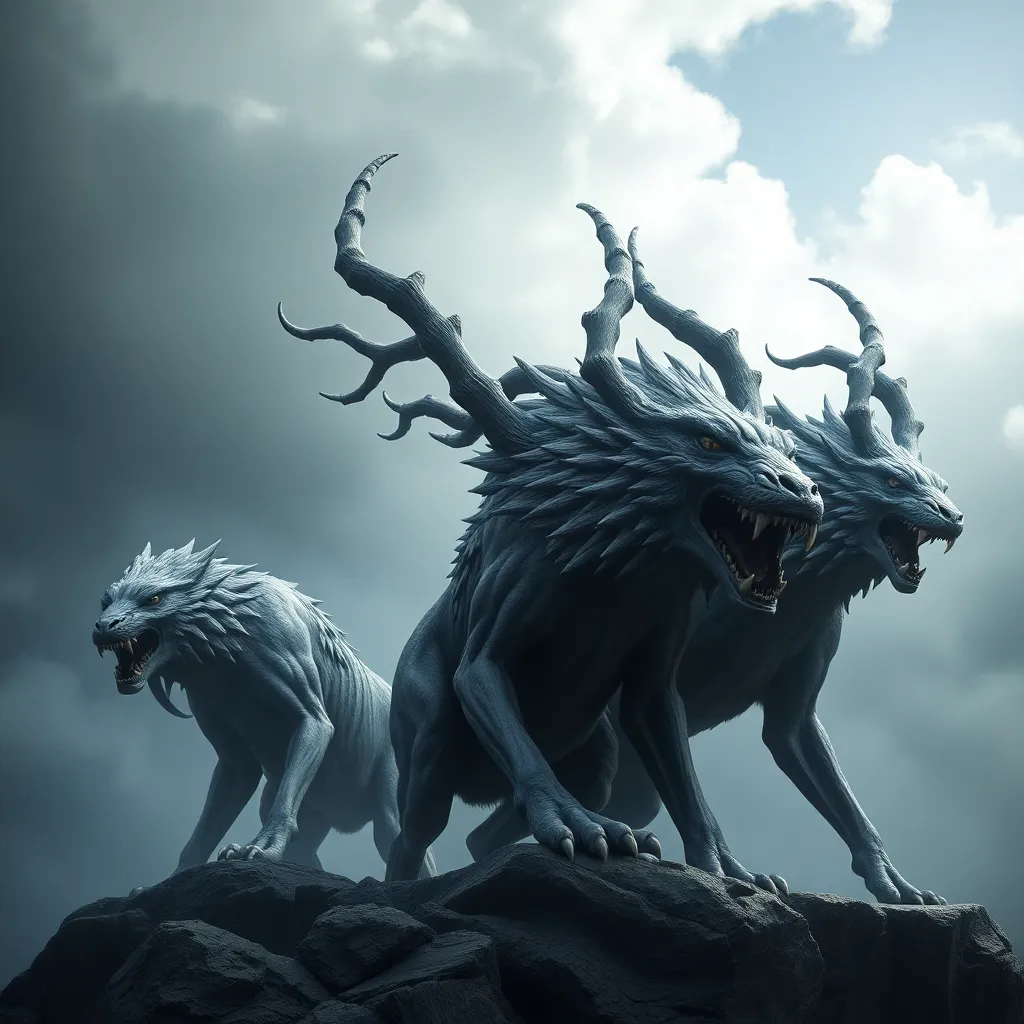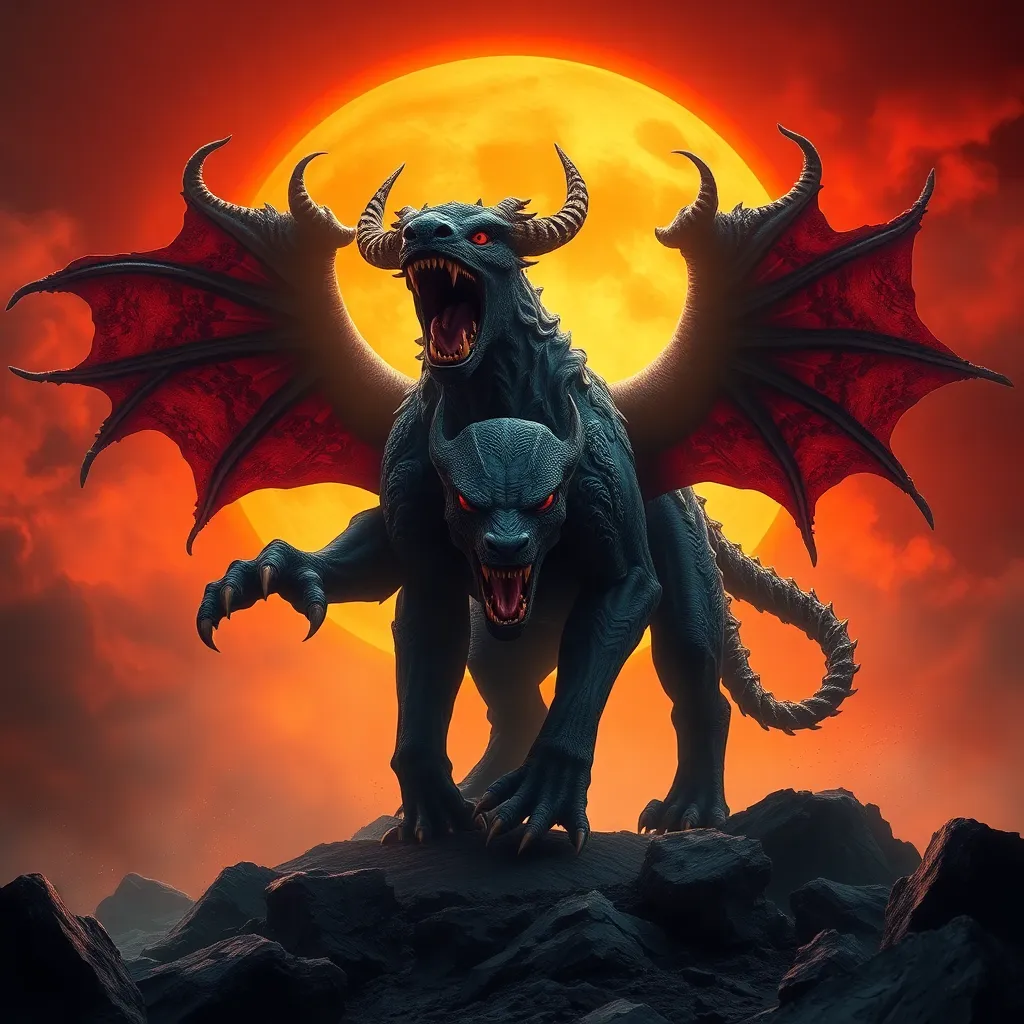The Tale of Houyi: A Hunter’s Quest for Immortality
I. Introduction
The legend of Houyi, a skilled archer and hunter, has been an integral part of Chinese mythology for centuries. Known for his valor and unmatched skills, Houyi’s tale is not merely one of heroism but also explores profound themes of mortality and the human condition. The quest for immortality, a recurring theme in Chinese mythology, underscores the struggles and aspirations of humanity. This article aims to delve into the rich narrative of Houyi, exploring his origins, heroic deeds, and the consequences of his quest for eternal life.
II. The Origins of Houyi
Houyi’s story is steeped in the historical and cultural context of ancient China. The synthesis of myth and history paints a picture of a society that revered strength, bravery, and the pursuit of wisdom. Born into a world where heroes were celebrated, Houyi quickly gained recognition for his exceptional hunting abilities.
In his early life, Houyi was not only a skilled hunter but also a symbol of hope for the people. Legends describe him as a man of integrity, respected by both humans and celestial beings. His relationship with the gods was pivotal, as they often intervened in human affairs, providing guidance and challenges that shaped his destiny.
III. The Ten Suns
The myth of the ten suns is a fascinating tale that serves as a backdrop for Houyi’s heroics. According to legend, ten suns rose in the sky simultaneously, scorching the earth and causing chaos. Rivers dried up, crops failed, and humanity faced extinction.
In a moment of desperation, Houyi made a heroic decision to save humanity by shooting down nine of the ten suns. This act of bravery not only restored balance to the world but also established him as a legendary figure in Chinese folklore. However, this act came with its own challenges and consequences:
- He faced the wrath of the remaining sun, which was left to shine alone.
- His actions angered certain deities who believed that such power should not be wielded by mortals.
- His reputation transformed him into a hero, but also cast a shadow of loneliness and isolation as he grappled with the implications of his power.
IV. The Quest for Immortality
With the weight of his heroic deeds and the burdens they brought, Houyi’s desire for immortality grew stronger. The motivations behind this quest were complex, rooted in a mix of guilt, loss, and the desire to protect the world he saved.
Throughout his journey, Houyi encountered various divine beings who offered him guidance and trials. His search for the elixir of immortality became a central focus, representing not only a desire for eternal life but also the quest for knowledge and understanding of his place in the universe.
The elixir of immortality was significant for several reasons:
- It symbolized the ultimate reward for his actions as a hero.
- It represented the duality of life and death, and the natural order of existence.
- It posed moral questions about the right to live forever and the responsibilities that come with such power.
V. The Trials and Tribulations
Houyi’s quest was fraught with obstacles. Each challenge tested not only his strength but also his moral compass. As he journeyed deeper into the realm of the divine, he faced dilemmas that forced him to consider the consequences of his desires.
One of the most significant aspects of his story is his relationship with his wife, Chang’e. Their bond was both a source of strength and a point of tragedy. As Houyi sought the elixir, he grappled with the implications of his actions on their love:
- Chang’e’s own desire for immortality and the conflict it created.
- The sacrifices they both had to make for their individual quests.
- The emotional toll on their relationship as Houyi pursued his destiny.
VI. The Consequences of Immortality
Upon obtaining and consuming the elixir of immortality, the immediate effects were transformative. Houyi was granted eternal life, but at a significant cost. The separation from Chang’e became a central theme in the latter part of his tale.
This separation had profound implications:
- It highlighted the loneliness that often accompanies immortality.
- It forced Houyi to confront the idea that eternal life may not equate to eternal happiness.
- His character evolved from a valiant hero to a more complex figure, burdened by the weight of his choices.
VII. Legacy and Cultural Impact
The tale of Houyi has left an indelible mark on Chinese folklore and literature. His story has inspired countless adaptations across various forms of media, from traditional tales to modern interpretations:
- Artworks depict his heroic feats and the tragic love story with Chang’e.
- Literature often draws parallels between Houyi’s quest and the human experience of seeking meaning and purpose.
- His legacy is reflected in festivals and cultural celebrations, particularly the Mid-Autumn Festival, which honors his connection with Chang’e.
Moreover, interpretations of Houyi’s quest for immortality resonate across different cultures, often symbolizing the universal human desire to transcend mortality and the inherent risks of such pursuits.
VIII. Conclusion
In reflecting on the themes of immortality and sacrifice, Houyi’s story serves as a poignant reminder of the complexities of human desires. The pursuit of eternal life, while alluring, often comes with unforeseen consequences that challenge our understanding of happiness and fulfillment.
As we navigate our own lives, the relevance of Houyi’s tale in contemporary society is undeniable. It encourages us to ponder the true costs of our aspirations and the sacrifices we are willing to make in pursuit of our dreams. Ultimately, the tale of Houyi reminds us that the quest for eternal life is fraught with challenges, and the journey itself is often more significant than the destination.



